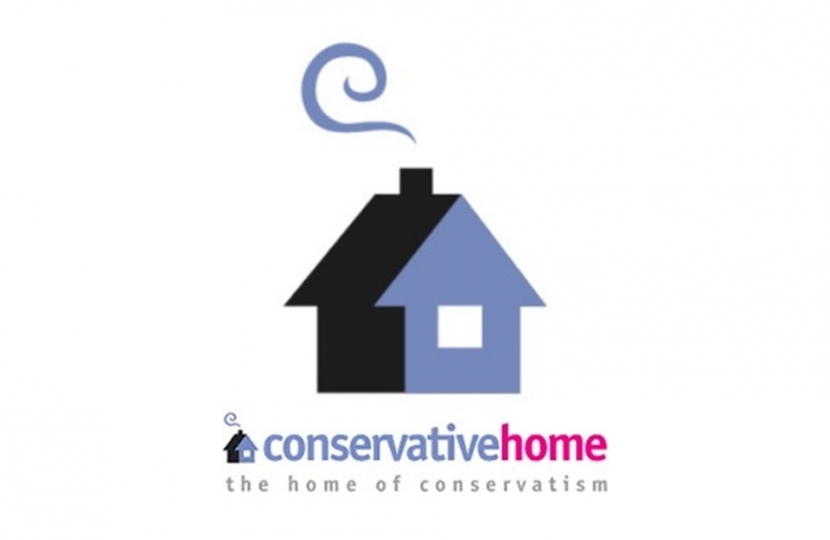
There is no doubt the thumping majority earned by the Conservatives nationally, and the realisation that the Democratic Unionist Party could no longer be Westminster power brokers, played a much more prominent role in bringing back power sharing last week than the more pressing needs of hard-working nurses or the lack of governance for three years.
Yet it was within hours, back around the Executive table in Stormont, that the new finance minister, Conor Murphy of Sinn Fein, was criticising the British Government, describing the mere £2 billion of funding for the Province as “woefully inadequate”.
Julian Smith, the Northern Irish Secretary, was right to point out that during the 36-month shutdown MLAs who were not even sitting in Parliament Buildings, save for one theatrical display in October 2019, all whilst costing the taxpayer £15 million in salary.
There is a much deeper issue here than the usual efforts eke out that little bit more from London, one that goes right to the heart of the current Northern Irish political culture, defined as it is by an eye for complaint rather than opportunity and which is still centred on traditional Unionist and Nationalist divides.
Sinn Fein, who view the economy on an all-Ireland basis, mention the Assembly must have “strong economic policies.” Great, but which government does not want strong economy polices? Mostly they devote their manifesto to bashing the Tories, bashing Brexit, and spend three pages attempting to justify the need for a border poll on Irish unification despite that a plurality of voters in Northern Ireland voted for pro-Union parties.
The DUP do a little better, at least mentioning the word “economy” more than a handful of times. However, the bulk of the economic section in their manifesto talks about the rest of the UK, mentioning amongst other things: cancelling HS2, building a third runway at Heathrow, and ‘digital infrastructure’. They do talk about having access to Iceland’s renewables through an, “interconnection making landfall in Northern Ireland” (although more hot air courtesy of the DUP is probably not required at this juncture).
All great, but mostly irrelevant when it comes to actually generating wealth and prosperity in the part of the country you are asking voters to let you govern on their behalf – and mostly centred on boosting their pro-Union credentials.
The politics of Northern Ireland is moving on from the bi-polar attitude of the past, where Sinn Fein and the DUP can rely on their Nationalist and Unionist support bases, towards one where voters care, not just about how their public services are run, but about how enterprise and productivity can be improved across the country. The 8.8 per cent rise of the Alliance Party – a party with no outward Nationalist or Unionist core policy – across the country shows this evolution from traditional Northern Irish politics towards a more mainstream style closer to that we experience in the rest of the UK.
This shift presents an opportunity for more conventional, national parties to stand. The argument for why we should do extends beyond offering voters a more diverse choice and political expediency. For the Conservative Party, in particular, for whom the importance of the United Kingdom is woven into our history and values, this presents an opportunity to cement those credentials in a manner that the DUP as a regional party cannot do, particularly as the threat of a second Scottish referendum looms on the horizon.
The arguments for intent therefore are clear, but what about actual opportunity? In 2019 the Conservatives were the only national party to field candidates in Northern Ireland, in four of the eighteen constituencies, so there is a first-mover advantage. In addition the swings away from the traditional parties, of -6.7 per cent and -5.4 per cent for Sinn Fein and the DUP respectively, present an opening that the Conservatives can exploit.
In terms of gaining electoral representation, the vote share across Northern Ireland does not necessarily tell the full story. For opportunity CCHQ need to look at places like North Down and East Belfast where moderate, Conservative policies still chime well with the public.
North Down, for example, which was represented by independent Lady Sylvia Hermon from 2001 to 2019, rejected the DUP in favour of the moderate Alliance Party. Notably the Conservative candidate saw a vote share increase of +2.4 per cent, which was higher than the national vote share increase for the Tories (+1.2 per cent) and much higher than the average Northern Ireland increase (+0.2 per cent).
In terms of Assembly elections, Belfast East provides a great opportunity. At the general election the constituency swung -6.6 per cent from the DUP, mostly in favour of the Alliance Party. The Conservatives did not field a candidate but had they done so, a swing in favour of more mainstream politics would have been evident.
Clearly there is a realism argument here. The numbers and swings to the Conservatives are small, there is no denying it. These kind of seats are won over decade-long campaigns and hard work by activists.
For example, take Blyth Valley, a cornerstone of Labour’s ‘Red Wall’, which crumbled to the Conservatives in 2019. The election swings to the Conservatives in all three previous General Elections was +2.7 per cent, +5.1 per cent, and +15.2 per cent before Ian Levy gained the seat in 2019.
The reasons for this were partly Brexit-related, but also rooted in a deeper disaffection with a system in which Labour took too many of its traditional voters for granted. This created an opportunity for the Tories, and a commitment to invest and build on success, no matter how small initially, paid off. Similar success could be gained in Northern Ireland if the Party shows a like willingness to field candidates and properly resource long-term strategies, focused on the day-to-day concerns of the voters.
Traditional politics in Northern Ireland still means Unionist and Nationalist. The people of Northern Ireland deserve so much more than this bipolar choice when they go to the ballot box – and over the past 32 years there has been a shift away from it.
As the population feels more secure, there is more emphasis being placed on the standards of schools, healthcare, and the productivity gap in Northern Irish industry. Yet the parties there remain entrenched, denying voters their opportunity to choose something better.
As a national party, committed to standing in every seat, the Conservatives can and should offer that choice – and if the strategy is right, have a realistic chance of success too. Not only that, but with a true national voice we can back up our credentials as the Party of the Union (rather than simply another unionist party).
It is time we ended the oligopoly on electoral success in Northern Ireland, upended the traditions of politics there, and offered Ulster’s voters the alternative they deserve.
Link to original, published on ConservativeHome on 25 Jan 2020.




